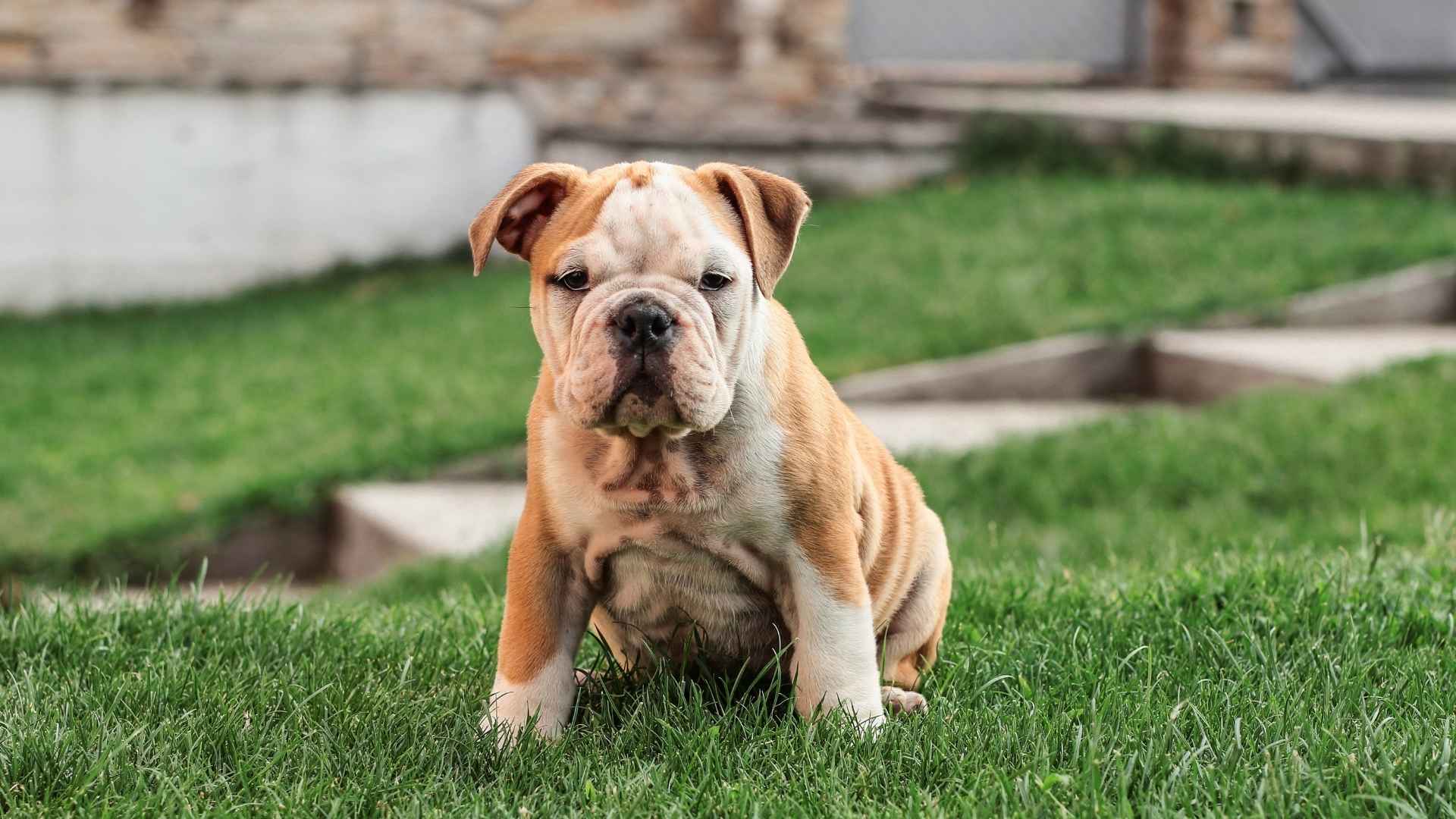Dogs bring immense joy and companionship to our lives, but sadly, some breeds have shorter lifespans than others. While every dog owner wishes for a lifetime with their furry friend, certain breeds are genetically predisposed to shorter lives due to size, health conditions, or specific traits. Understanding these factors can help pet owners provide the best care and cherish every moment with their beloved companions.
Despite their brief time with us, these dogs leave an everlasting impact with their loyalty, love, and playful nature. Responsible pet ownership, a healthy diet, regular vet checkups, and an active lifestyle can significantly improve their quality of life.
If you’re considering bringing home a breed with a shorter lifespan, knowing what to expect can help you prepare for a rewarding journey filled with love and unforgettable memories. Let’s explore these breeds and how to give them the best life possible.
Short-Lived Dog Breeds
1. English Bulldog
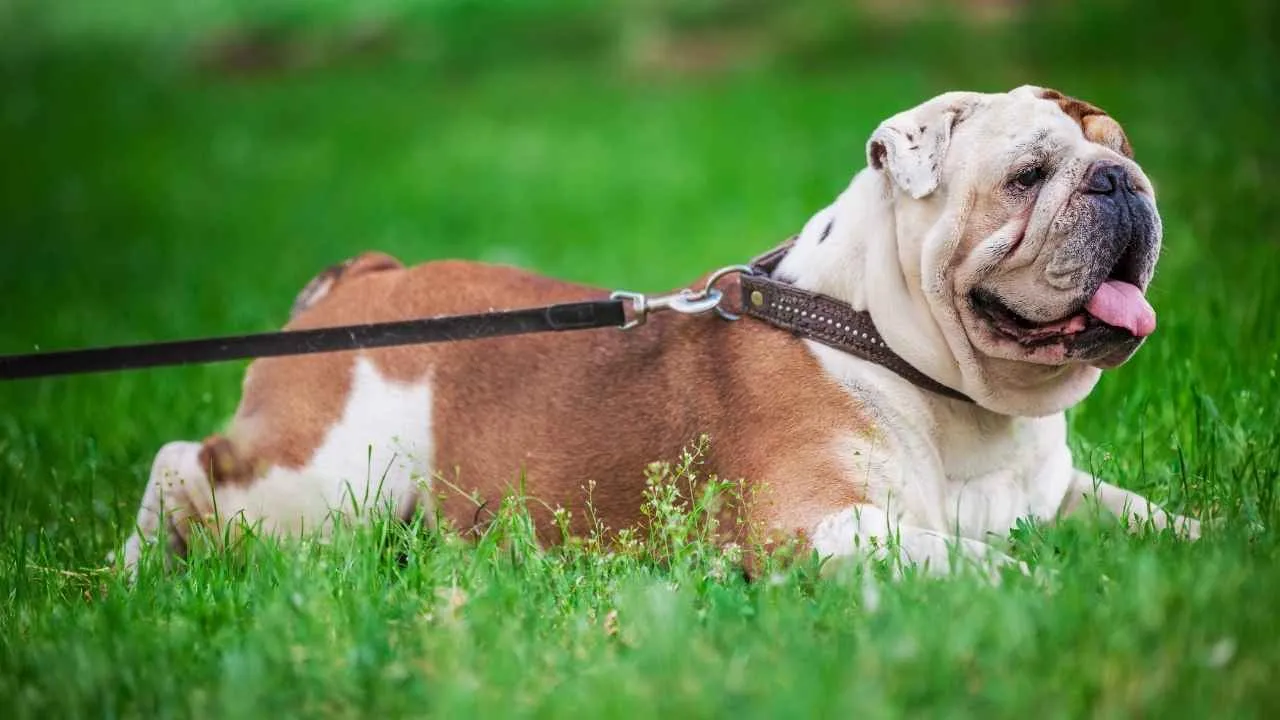
The English Bulldog is one of the most well-known short-lived dog breeds, with an average lifespan of 8-10 years. Their distinctive wrinkled face, stocky build, and charming personality make them popular companions, but their short lifespan is largely due to inherited health issues. Despite their lovable nature, these dogs often require special care to ensure a good quality of life.
One of the main reasons for their shorter lifespan is their brachycephalic (flat-faced) structure, which causes breathing difficulties. Bulldogs often struggle with Brachycephalic Obstructive Airway Syndrome (BOAS), making it difficult for them to breathe, especially in hot or humid conditions. This condition can lead to reduced oxygen levels and increase the risk of respiratory distress.
English Bulldogs are also prone to joint and bone problems, particularly hip dysplasia. Their compact, muscular bodies strain their joints excessively, leading to arthritis and mobility issues at an early age. Proper weight management and controlled exercise are essential to minimize these risks.
Another significant concern is heart disease, which is common in Bulldogs due to their genetic predisposition. Conditions like pulmonic stenosis and congenital heart defects can shorten their lifespan. Regular veterinary checkups and a heart-healthy diet can help manage these issues and improve longevity.
Skin infections are also a frequent problem due to their deep facial wrinkles and skin folds. Moisture and bacteria can accumulate in these areas, leading to chronic infections and discomfort. Regular cleaning and proper hygiene are necessary to prevent skin-related complications that could impact their health.
As noted by Hillspet, English Bulldogs are affectionate, loyal, and excellent family pets despite their health challenges. With proper care, a balanced diet, regular vet visits, and a comfortable living environment, owners can help their Bulldogs enjoy a happy and fulfilling life.
2. Boxer

The Boxer is a beloved breed known for its playful and energetic nature, but it has a relatively short life expectancy of 9-12 years. Despite their affectionate temperament, these large dogs are prone to various health problems that can shorten their lifespan, making them a challenging choice for some prospective dog owners.
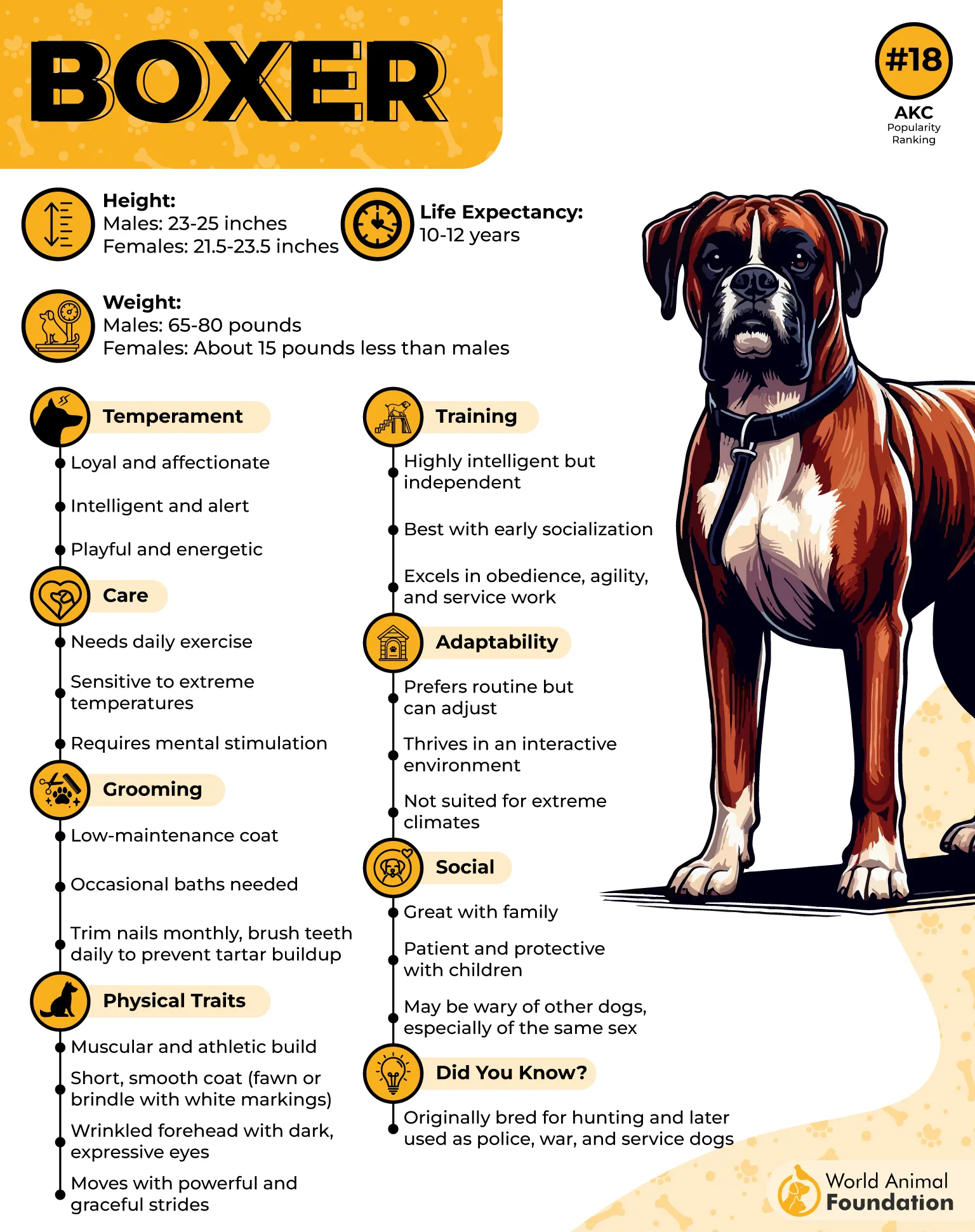
Boxers are also prone to canine hip dysplasia, a genetic disorder that affects the hip joint and leads to discomfort and mobility challenges. This condition, along with hip and elbow dysplasia, is common in large dogs, making monitoring their movement and weight essential. Providing high-quality dog food for joint health can help support their skeletal system.
Heart disease is another potential health issue for Boxers, particularly aortic stenosis, a condition that restricts blood flow from the heart. This can cause fatigue, fainting, or sudden cardiac events. Routine screenings during regular veterinary checkups can help detect early signs and allow for proper management.
In addition to genetic disorders, Boxers are susceptible to digestive issues and food sensitivities. Feeding them well-balanced dog food that meets their specific nutritional needs can aid in digestion and overall health. Avoiding artificial additives and allergens can also help prevent stomach discomfort and other digestive complications.
With proper care, early detection of health problems, and a commitment to regular veterinary checkups, Boxers can enjoy a happy and active life. While their life expectancy is shorter than that of smaller dog breeds, providing a loving environment, healthy nutrition, and exercise can help maximize their years and ensure a fulfilling companionship.
3. Irish Wolfhound
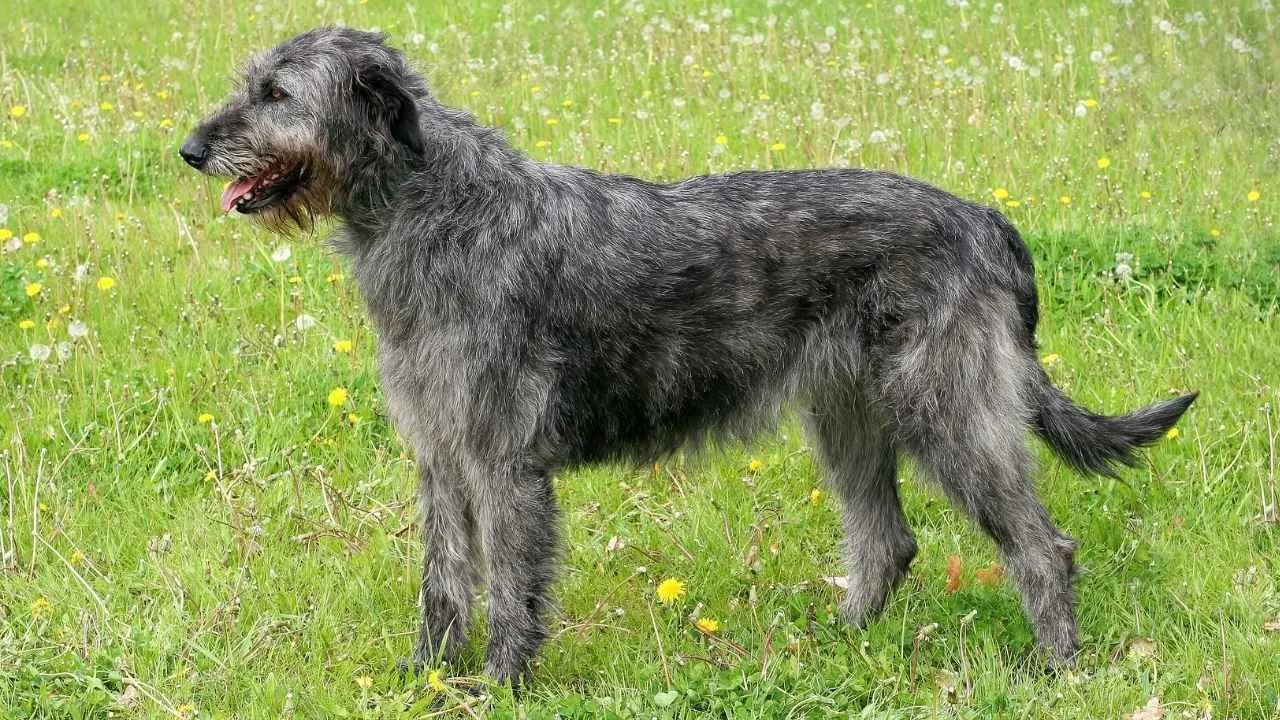
The Irish Wolfhound is a majestic and gentle giant with a short life expectancy of only 6-8 years. Their large size contributes to a faster aging process, making every moment and time spent with them precious for their owners. Despite their loving nature, they are prone to serious health issues that require careful management.
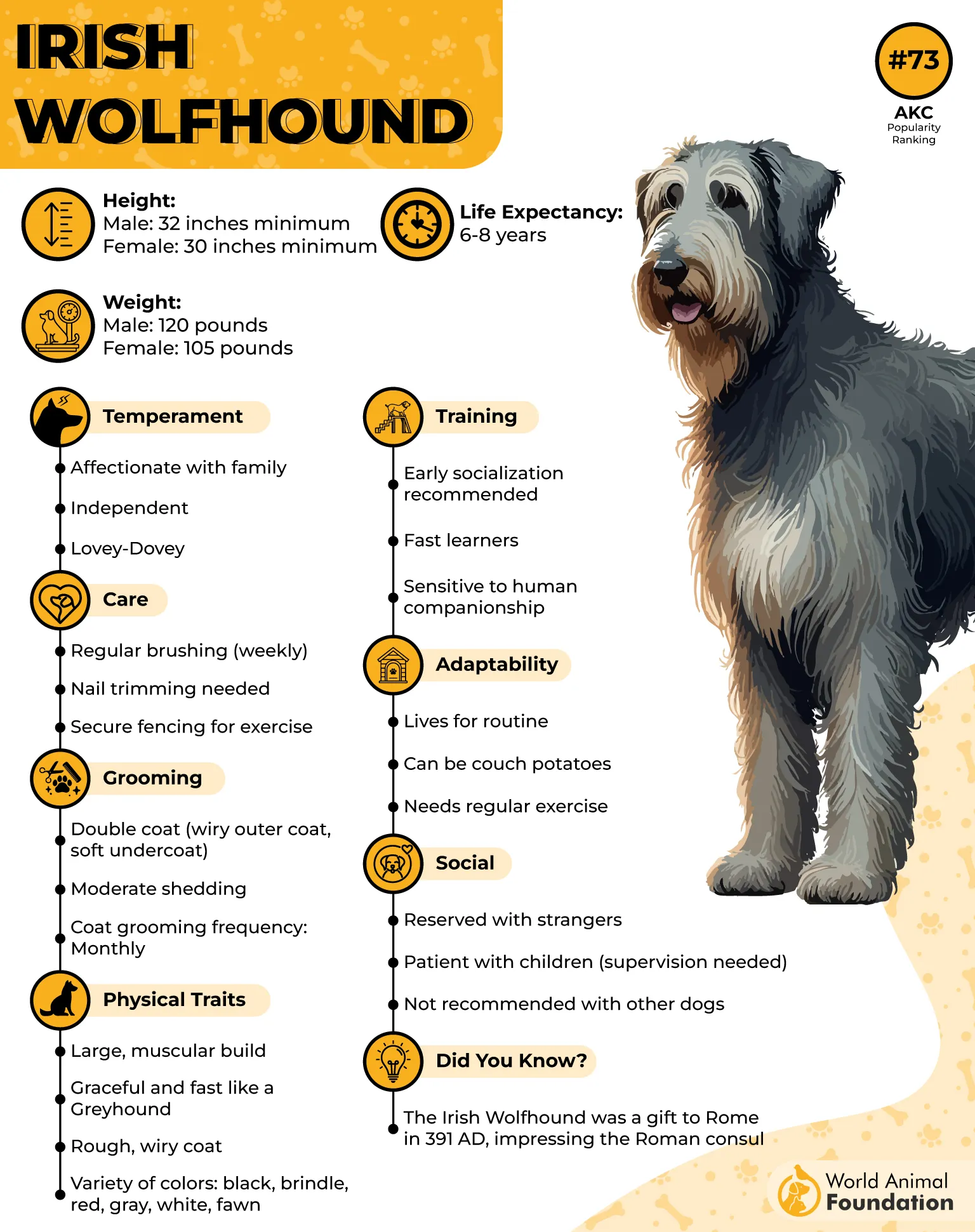
One of the most common concerns for Irish Wolfhounds is bone cancer, a leading cause of death in giant breeds. This aggressive disease can develop rapidly, causing pain and mobility issues. Early detection through regular veterinary checkups can help improve their comfort and extend their time spent with their families.
These dogs are also at high risk for heart conditions, particularly dilated cardiomyopathy (DCM), which weakens the heart and affects blood circulation. Routine screenings during regular veterinary checkups can help identify heart issues early, allowing for timely intervention and better management.
Due to their rapid growth, Irish Wolfhounds often suffer from joint problems such as hip and elbow dysplasia. Their large frames put extra strain on their bones, leading to discomfort and difficulty in movement. Providing joint-supportive nutrition and moderate exercise can help maintain mobility and overall well-being.
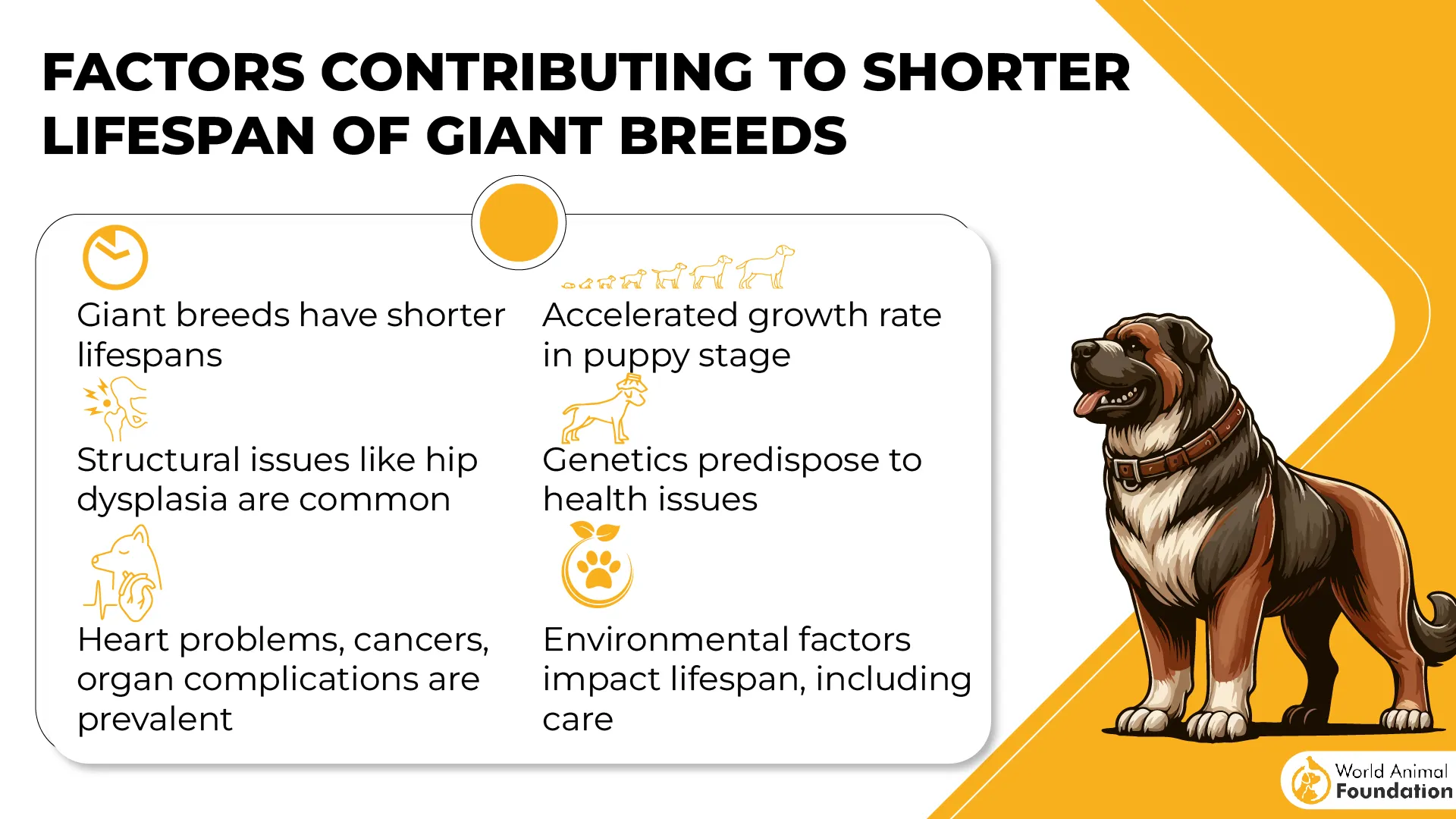
Bloat, or gastric torsion, is another life-threatening condition common in giant breeds like the Irish Wolfhound. This occurs when the stomach twists, cutting off blood flow and causing severe distress. Monitoring meal portions, avoiding excessive exercise after eating, and being aware of symptoms can be life-saving.
Irish Wolfhounds form deep bonds with their owners despite their short life expectancy. The time spent with them is filled with loyalty and affection, making their presence unforgettable.
4. Great Dane
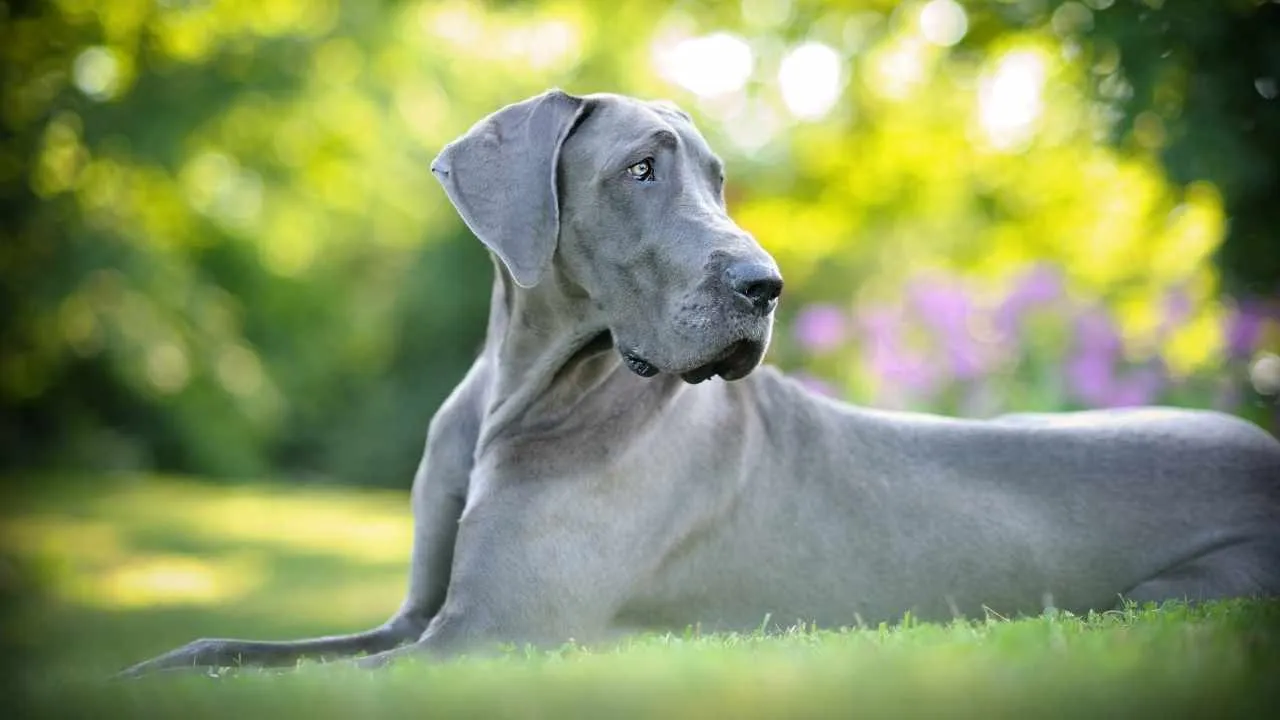
The Great Dane is one of the most popular large breeds, known for its gentle temperament and regal appearance. However, its massive size contributes to a dog’s life expectancy of only 7-10 years. While some individual dogs may live slightly longer, their overall longevity remains shorter due to various health concerns associated with their size.
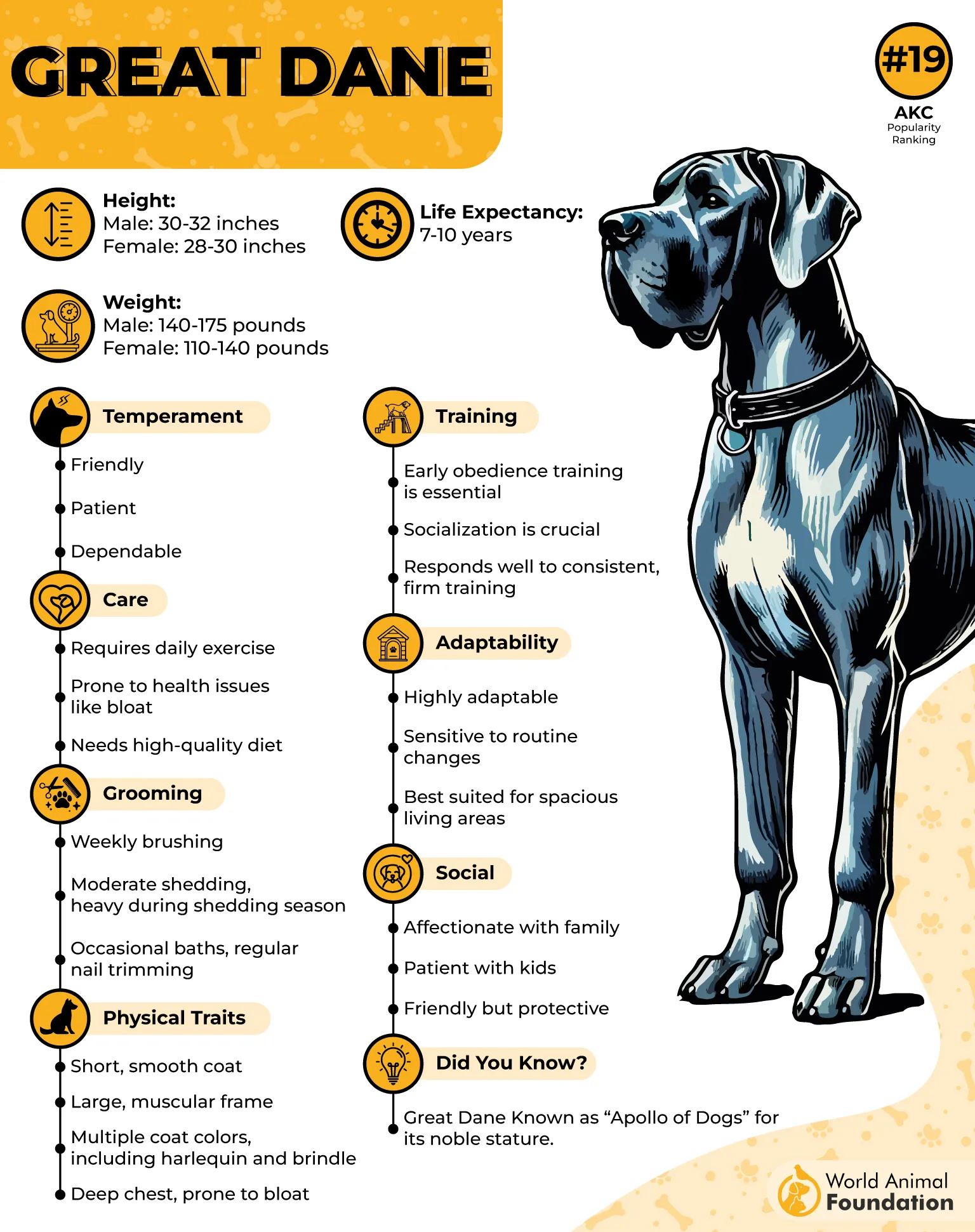
As Britannica states, one of the most serious health issues affecting Great Danes is dilated cardiomyopathy (DCM), a heart condition that weakens the heart muscle and affects circulation. Regular screenings and proper veterinary care are essential for early detection and management to improve their quality of life.
Great Danes are also prone to joint issues, particularly hip and elbow dysplasia, due to their rapid growth and massive size. These conditions cause pain and mobility problems, impacting their overall longevity. Ensuring good health through proper weight management, joint-supportive nutrition, and regular exercise can help reduce strain on their bones.
Bloat, or gastric torsion, is another life-threatening condition commonly affecting Great Danes. Their deep chests make them more susceptible to this condition, which requires immediate medical attention. Preventive measures, such as feeding smaller meals and avoiding intense activity after eating, can help lower the risk.
Despite their shorter lifespan, Great Danes are wonderful companions that form deep bonds with their owners. Providing them with proper nutrition, veterinary care, and a comfortable living environment can help maximize their dog’s life expectancy and ensure they enjoy a healthy and happy life.
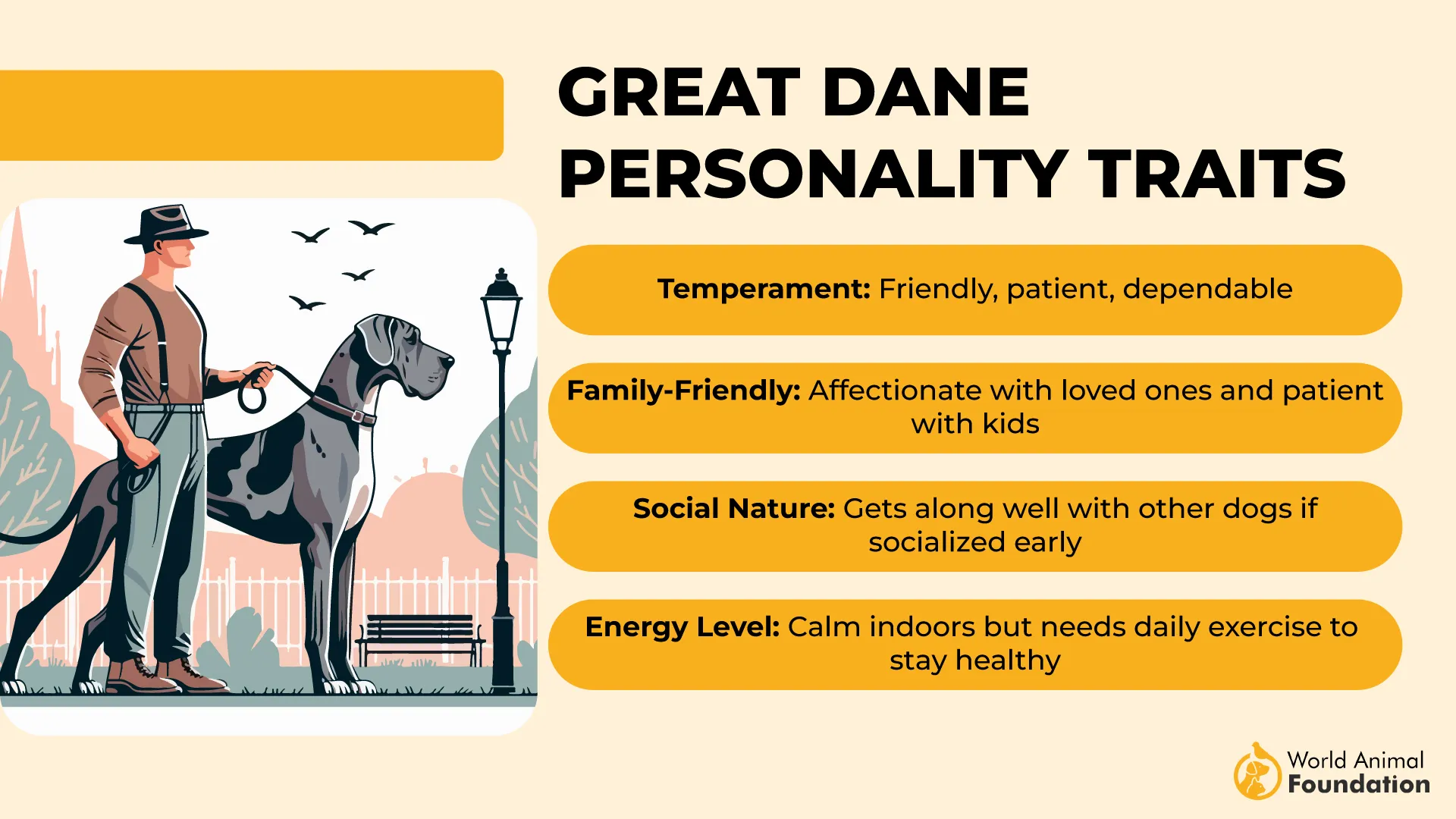
While these gentle giants may not have a longer lifespan, the love and loyalty they bring make every moment with them truly special.
5. Bernese Mountain Dog
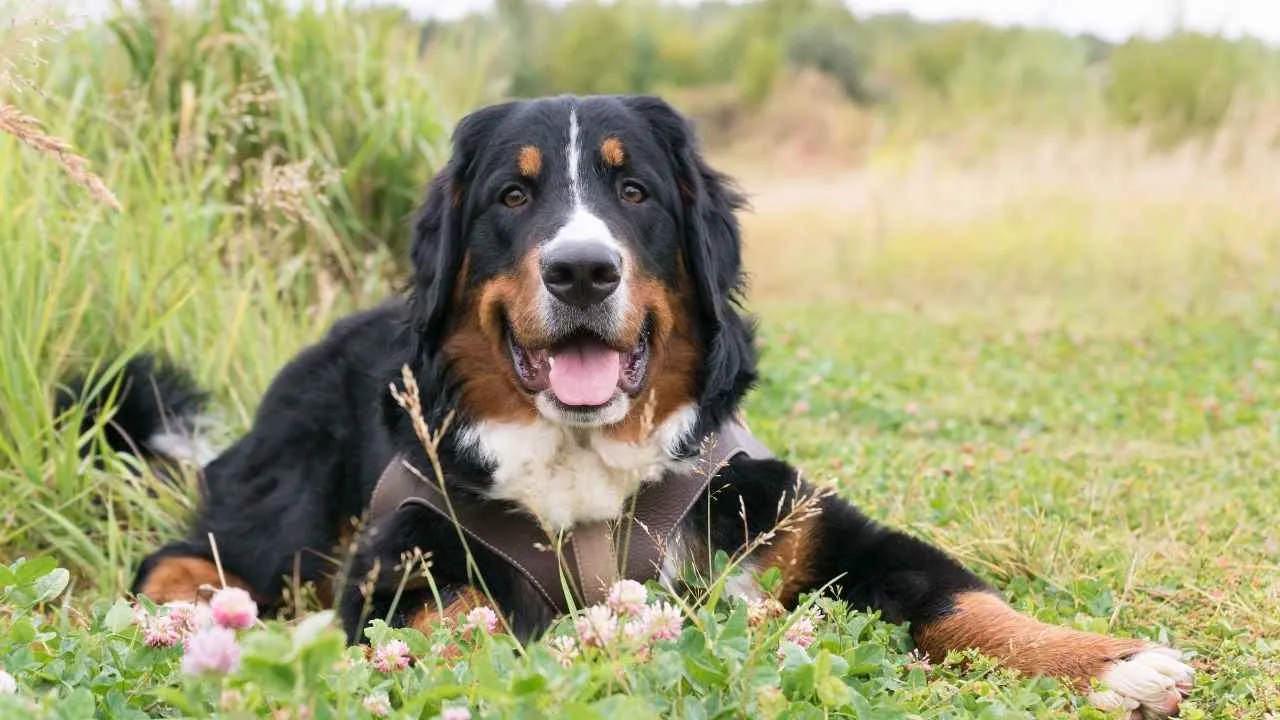
The Bernese Mountain Dog is a large, affectionate breed known for its friendly nature and working heritage. However, it has a short average life expectancy of 6-8 years, making it one of the shorter-lived breeds. Genetic health conditions often affect their lifespan, which requires careful monitoring and early intervention.
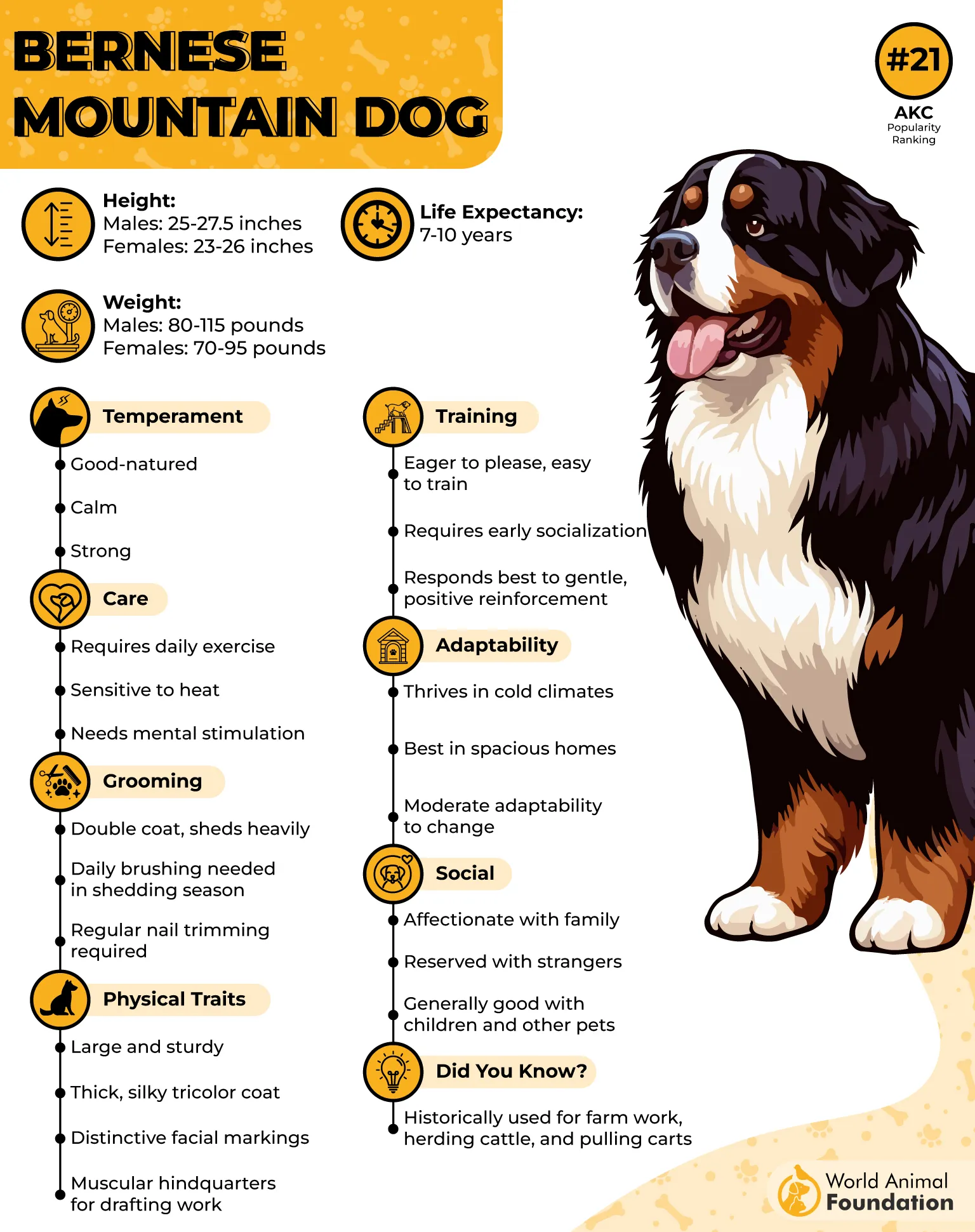
PetMD states that one of the most serious health concerns for Bernese Mountain Dogs is cancer, particularly histiocytic sarcoma. This aggressive disease significantly impacts their average life expectancy and is a leading cause of death in the breed. Regular screenings and regular veterinary checkups are crucial for early detection and treatment options.
Joint issues, such as hip and elbow dysplasia, are also common in this breed. Their large size puts extra strain on their joints, leading to mobility challenges. Ensuring proper weight management, controlled exercise, and routine regular veterinary checkups can help maintain their joint health and overall well-being.
Heart disease is another factor that affects their average life expectancy. Conditions like dilated cardiomyopathy (DCM) can lead to heart failure if not managed properly. Monitoring their heart health through regular veterinary checkups allows for early diagnosis and treatment, improving their quality of life.
Bernese Mountain Dogs are also prone to digestive issues, including bloat, which can be life-threatening. Careful feeding practices, such as smaller meals and avoiding strenuous activity after eating, can help reduce the risk of this condition. Maintaining a balanced diet and proper digestion is key to their longevity.
6. French Bulldog

The French Bulldog is a beloved companion breed known for its affectionate nature and playful personality. However, it has a relatively short life span of 10-12 years, often affected by genetic health issues. Their compact build and unique physical features make them prone to several conditions that require careful management.
One of the primary health concerns in French Bulldogs is brachycephalic obstructive airway syndrome (BOAS), which results from their short snouts. This condition affects how these dogs live, making breathing difficult, especially in hot or humid conditions. Regular veterinary checkups are essential to monitor respiratory health and prevent complications.
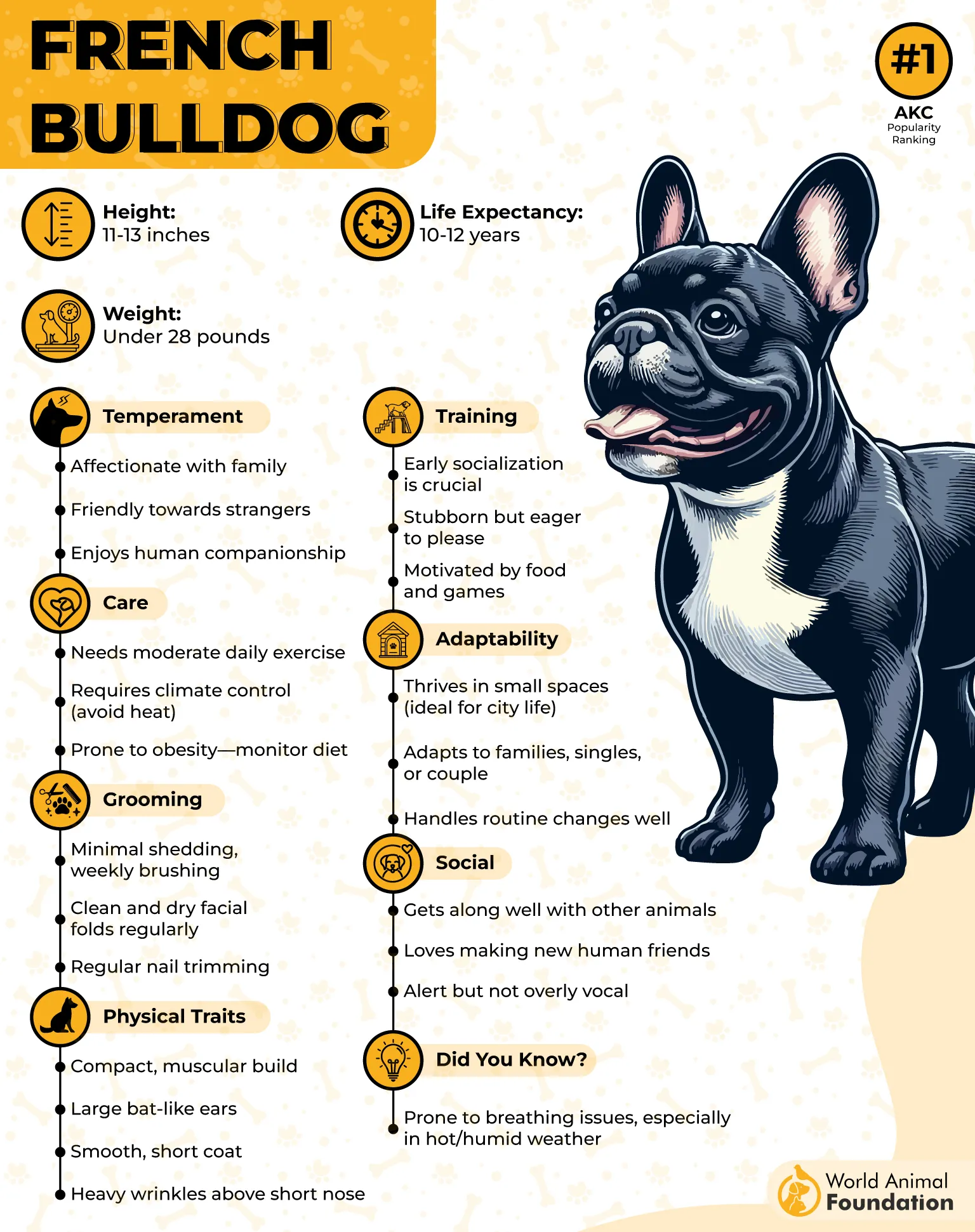
French Bulldogs also suffer from spinal issues, including intervertebral disc disease (IVDD), due to their compact structure. This can lead to pain, mobility problems, and, in severe cases, paralysis. Ensuring proper weight management and avoiding excessive jumping can help reduce strain on their spine and improve their lifespan.
Joint problems, such as hip dysplasia and patellar luxation, are also common in this breed. While these conditions are often associated with larger dogs, French Bulldogs can develop them as well. Regular veterinary checkups can help detect early signs and ensure proper treatment to maintain mobility and comfort.
French Bulldogs are also prone to skin allergies and infections, particularly in their facial wrinkles. Moisture buildup in these folds can lead to bacterial infections and irritation. Regular cleaning and proper skincare routines can help prevent these issues and support overall well-being.
French Bulldogs are affectionate and loyal pets despite their shorter life spans compared to some smaller counterparts. With attentive care, regular veterinary checkups, and a balanced lifestyle, they can enjoy a healthy and happy life, bringing endless joy to their owners.
7. Rottweiler
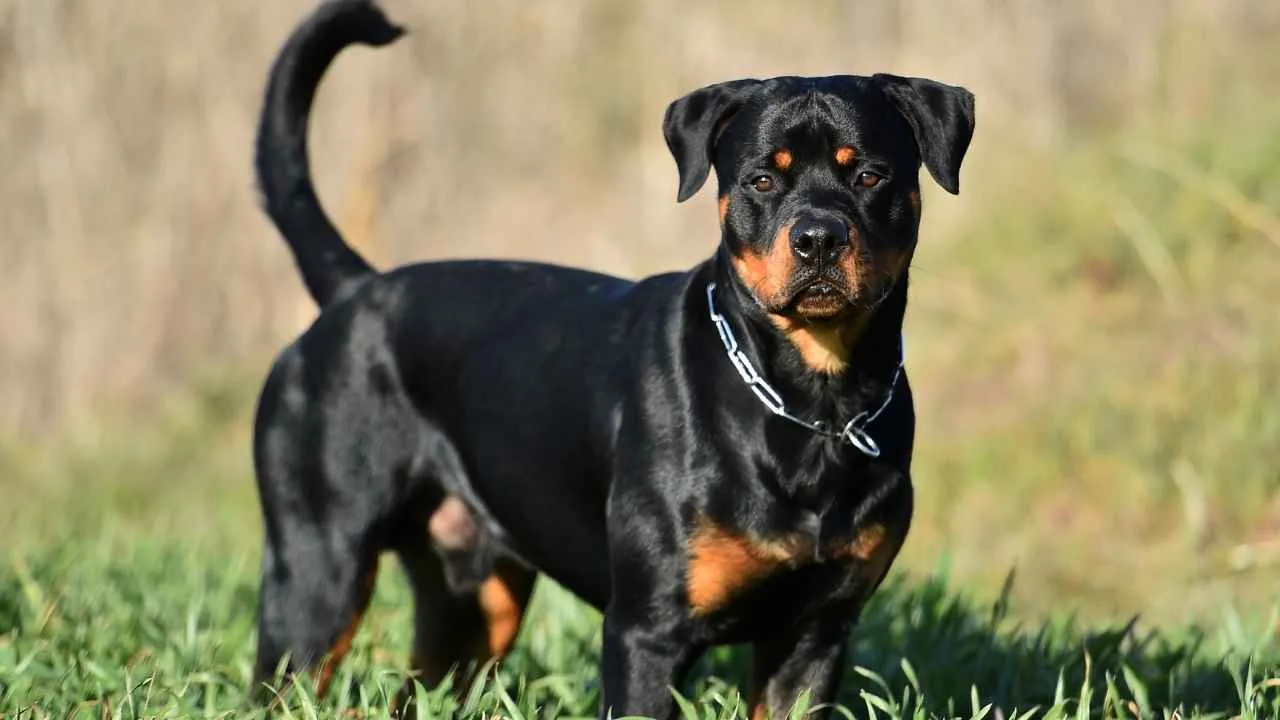
The Rottweiler is a powerful and loyal breed, but sadly, it falls among the short-lived dog breeds. With an average lifespan of 8 to 10 years, these strong and intelligent dogs often face genetic and health challenges contributing to their relatively brief time with their owners.
Rottweilers are also prone to hip and elbow dysplasia, which can severely impact their mobility and quality of life. While these conditions are not life-threatening on their own, they can lead to chronic pain, reduced activity, and secondary health complications.
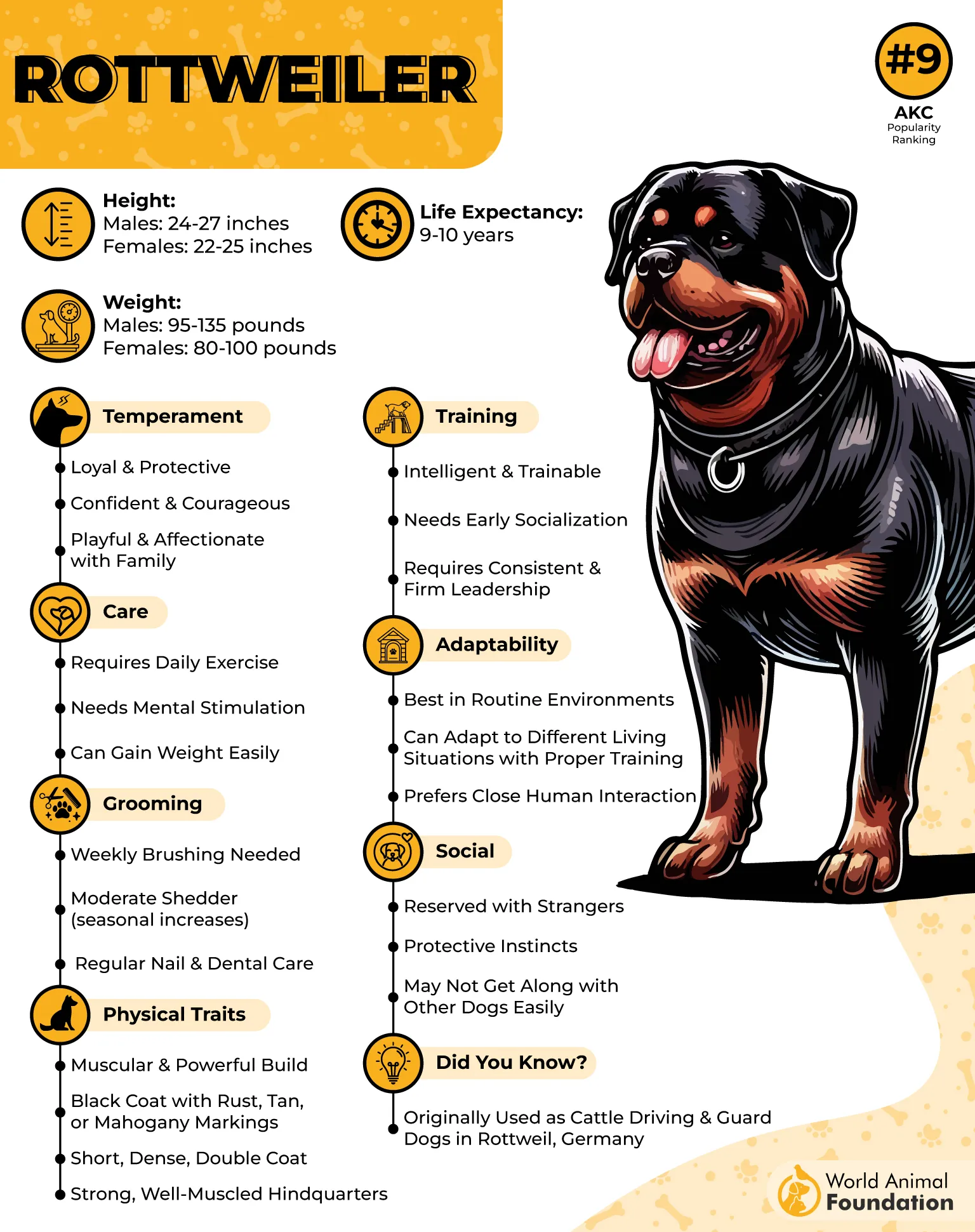
One of the primary reasons for the Rottweiler’s short lifespan is its cancer susceptibility, particularly bone cancer (osteosarcoma). This disease is common in larger breeds and can drastically shorten their life expectancy, even with early detection and treatment.
Heart conditions, such as aortic stenosis, are another major concern in Rottweilers. This congenital heart defect can lead to reduced blood flow, heart failure, and sudden death, making regular veterinary checkups crucial for early diagnosis and management.
Despite their short lifespan, proper care can help extend their years and keep them healthy. A balanced diet, regular exercise, and routine vet visits can significantly improve their overall well-being, ensuring they live their best lives.
Rottweilers form deep bonds with their families, making their loss even more heartbreaking. While their time may be limited, their unwavering loyalty, protective nature, and affectionate personalities leave a lasting impact on those who love them.
Conclusion
While many short-lived dog breeds, such as the Cavalier King Charles Spaniel, Neapolitan Mastiff, and Saint Bernard, may have shorter lifespans, it’s important to remember that regular veterinary check-ups can help maximize their health and comfort.
Smaller breeds, like Yorkshire Terriers and Toy Poodles, tend to have longer life expectancies than larger counterparts like the Dogue de Bordeaux and French Mastiff. Breeds like German Shepherds and Doberman Pinschers typically live longer but face different health challenges.
Regardless of the breed, all dogs, including Boston Terriers, Border Collies, and Scottish Deerhounds, benefit from attentive care to ensure they live their happiest and healthiest lives. Understanding each breed’s life expectancy and unique health needs can help guide responsible pet ownership, ensuring that both you and your dog enjoy many memorable years together.


